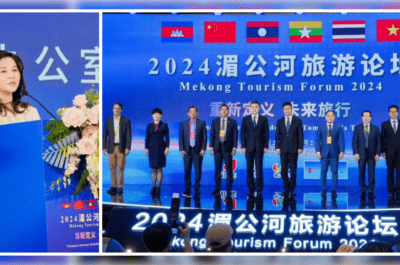The Association of Corporate Travel Executives’ (ACTE) most recent Executive Forum, held April 5 in Stockholm, highlighted ACTE’s commitment to …
The Association of Corporate Travel Executives’ (ACTE) most recent Executive Forum, held April 5 in Stockholm, highlighted ACTE’s commitment to address issues that are vital to its membership and turn those ideas into actionable results. As part of its effort to better advance the business travel industry, ACTE released the findings of an important study on travel distribution. The White Paper, entitled “The Future of Distribution”, was conducted on behalf of ACTE by Cranfield University, and is available exclusively to ACTE members.
ACTE commissioned the White Paper in an effort to broaden members’ understanding of recent developments in the distribution arena, and the impact on corporates, GDS companies, travel management firms and airlines.
The findings are based on an in-depth analysis of the various distribution models operating in today’s marketplace and a survey of key stakeholders in the business travel community. According to the White Paper, a number of factors have led players in the distribution chain to re-evaluate their strategy and business processes. Such factors include increasing consumer adoption of the Internet, advances in distribution technology, external industry shocks, and GDS deregulation in the US and potentially in Europe.
From the corporates’ perspective, the Cranfield Study concluded there will be an increased effort to ensure access to complete travel content. Concern that costs are passed to corporates through the distribution chain rather than being taken out remains a key issue. The paper predicts that booking costs are likely to increase. GDS companies’ relationships with their customers will be based increasingly on the value they offer rather than the effects of legislation. It is very apparent that GDSs have realised that market conditions have changed and there is a need for fundamental restructuring to ensure survival, claims the reports.
Deregulation of GDSs may lead to content fragmentation and screen preferencing or display bias, which could potentially favour larger airlines that are better able to pay for preferential treatment from GDSs. Moving forward, GDSs will need to invest in technology to develop differentiated products catering for the requirements of large airlines, smaller niche carriers and low cost operators.
Another key finding of the study is that, despite emerging alternate distribution models, corporates still view TMCs as the most effective way of managing travel, especially with respect to being able to track employees in the event of an emergency. The key concerns of TMCs are access to full content, global functionality and global fulfilment. However, the paper cautioned that potential content fragmentation, as a result of GDS deregulation, could lead to inefficiencies for travel agents as they need to consult various sources to offer the best option to their corporate clients. Airlines, meanwhile, will continue to use the internet as a tool to increase direct on-line sales and put pressure on intermediaries to reduce fees. At the same time, carriers will pay for services of those who clearly add value and enhance their market position.
Theodore is the Co-Founder and Managing Editor of TravelDailyNews Media Network; his responsibilities include business development and planning for TravelDailyNews long-term opportunities.
























































































